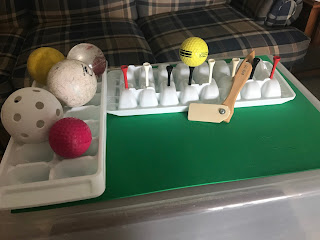A very important thing to remember as a practitioner is the AOTA Code of Ethics. This provides a guide line for OT's to help the recognize and resolve ethical dilemmas, practice at the expected standard, and educated their clients. There are seven principals that each address a specific aspect of the correct behavior. Principal 1: Beneficence OT practitioner will contribute to good health and well fare of the client. This includes treating the client fairly and equitably, advocating for services that are needed, promoting health and wellness, and to charge fees directly relating to the services provided. An example of this is helping a client who can no longer pay for services, giving them home therapy treatment but not charging them. Principal 2: Nonmaleficence The practitioner will not inflict harm on the client. This includes avoiding exploiting the client physically, emotionally, physiologically, socially, sexually, or financially. An example of this is referring a cl...
